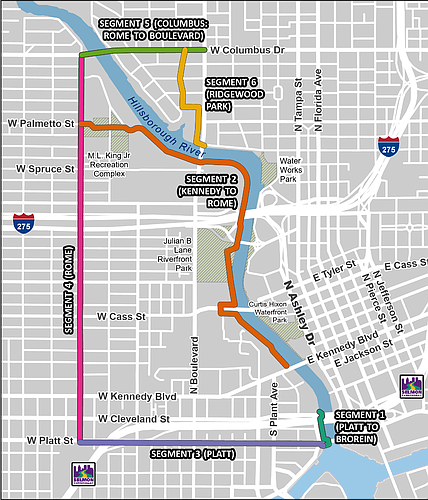- April 16, 2025
-
-
Loading

Loading

A search is underway for a team or firm that will work with the city of Tampa to help design and build out an about 5-mile extension of the Riverwalk that’s being funded in part with a $24 million grant from the U.S. Department of Transportation.
The chosen contractor, according to a statement, will work with the city to develop renderings, coordinate with the community and shape “what this expansion will truly look like.”
The search for the contractor is a significant step toward making into reality a plan to expand the Riverwalk west and connecting it to several neighborhoods — West Tampa, Tampa Heights, Bayshore Boulevard, Hyde Park, Riverside Heights, North Franklin Street and Bowman Heights.
The Riverwalk is currently 2.6 miles long, running along the Hillsborough River from Armature Works to the Garrison Channel at Sparkman Wharf.
The project, according to the city, will include improving sidewalks, bike lanes and enhanced crossings at major roadways in an effort to “expand safer connections in neighborhoods” in the area. Several schools are on the path, so this project will allow kids to walk to school more safely.
“This project is about more than just following the river, it's about connecting our neighborhoods and making them safer,” Mayor Jane Castor says in the statement.
The city says safety improvements are part of a strategy called Vision Zero aimed at getting to “zero deaths and life-changing injuries” on Tampa streets by improving safety features in certain areas in Tampa with high instances of pedestrian and vehicle crashes.
The project is expected to cost $30 million, but the overwhelming majority of that will be paid using money from the Transportation Department grant.
That $24 million grant was issued in late 2020 through the Better Utilizing Investments to Leverage Development Grant Program.